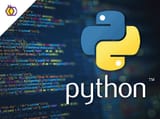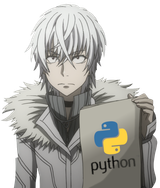>>106407547 (OP)
Those are some of the fundamental building blocks of many programming languages, but they aren't the complete picture for a solid foundation. While mastering functions, dictionaries, classes, lists/tuples, and data types is a great start, there are other essential concepts you should learn before moving on to more advanced topics.
What You've Got
(omitted)
What to Learn Next
To have a well-rounded understanding of the basics, you should also grasp these concepts.
Control Flow: This dictates the order in which your code is executed. Essential concepts include:
Conditional Statements: if, elif, and else statements allow your program to make decisions based on certain conditions.
Loops: for and while loops let you repeat a block of code multiple times. This is crucial for iterating over collections of data.
Error Handling (Exceptions): Things will go wrong in your code—it's inevitable. Learning how to use try, except, and finally blocks to handle errors gracefully is vital for building robust programs.
Modules and Libraries: Understanding how to import and use code written by others is a cornerstone of modern programming. No one builds everything from scratch. You'll need to know how to install and utilize external libraries to solve problems efficiently.
File I/O (Input/Output): This is about reading from and writing to files. It's a fundamental skill for tasks like saving data, processing logs, or working with configuration files.
Once you have a solid grasp of these concepts, you'll have a much more complete toolkit and can confidently move on to more specialized or advanced topics.
Thanks, but don't call me fucking ChatGPT.




